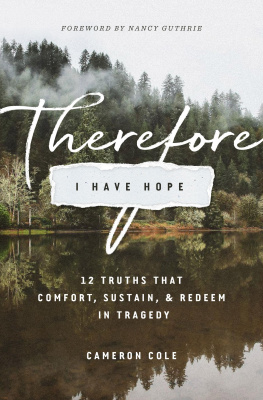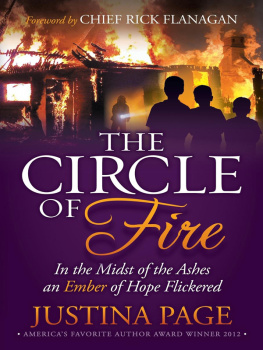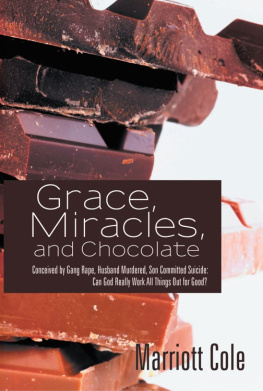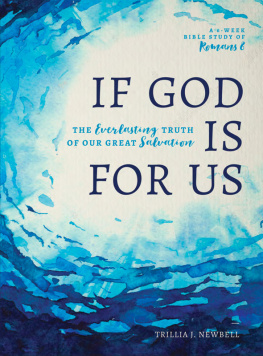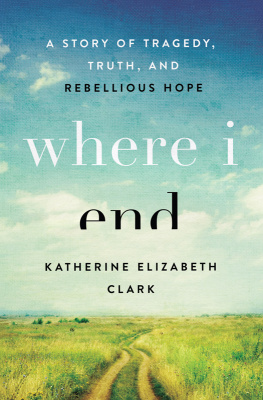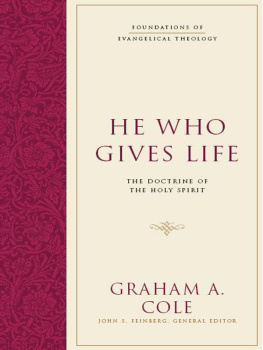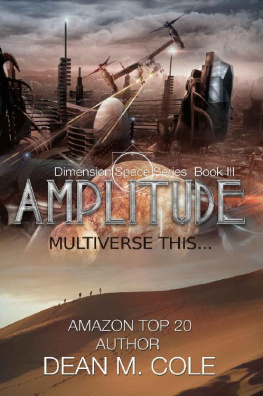Table of Contents
Landmarks
One of the most discouraging comments people said to me after my tragic loss was Youll see him again one day, or This will all be made right in heaven. Despite the good intentions and theological accuracy of such statements, what I heard was, The next time youll be happy again is when you die, as if I was sentenced to permanent sadness.
One of the most depressing fears that people face in the wake of their Worst is the feeling that they never will be happy again. Hobbies that once added so much excitement to life seem worthless. Who now cares about mountain biking, shopping, or watching sports? The vigor and passion of your vocation feels meaningless. That drive that got you out of bed in the morning evaporates. The annual vacation that you looked forward to all year now may be a point of dread.
Happiness seems impossible. Happiness seems out of reach.
Psychologists use the term anhedonia to describe losing the sense of pleasure that one previously experienced before a loss. Moments or activities that previously elicited great excitement no longer have such an effect. Anhedonia is common for those in grief.
I often found myself thinking, Life is over . I thought that I would just need to learn to deal with trudging through the rest of my life and learning to accept permanent discontentment.
I needed a new song of my own, and the Lord delivered it through one providential email.
On the day after Cam died, I opened my email to over five hundred new messages. As I scanned my bloated inbox, my eye landed on the urgent subject line of one email: Get this to Cameron.
More than the subject, though, the credibility of the sender gave my heart comfort in that desperate time. The sender was an old family friend, Henry, who had lost a child seventeen years before. I immediately identified with him and remembered the way that Henry and his wife, Judy, still deeply loved Jesus and how their lives continued to thrive after their daughter, Dine, passed away.
In the email, Henry shared the story of how nearly losing his second son to serious illness prepared him for the nightmarish reality of suddenly losing their daughter a decade later. Henrys email became instrumental in God giving me hope for the future. Henry informed me that their second son, Vaughn, had been born with a life -t hreatening pulmonary condition. Early on, Henry had to confront the possibility that one day he could experience the death of a child. Vaughn miraculously survived, but this frightening season provided a foundation for when their worst nightmare, indeed, came true over a decade later in the death of their daughter.
Henry closed his email with these pivotal words:
When Dine died in Chicago seventeen Septembers ago, God called His Word and His promise back to me. She no longer could come to me, but surely (as I live, breathe, and worship) I will go to her. This comfort led us through the years of grief that Judy and I faced at that time with the active promise from our Father that if we would lean into the grief He would surely bring us to. He would get us through it to a point where the death of precious Dine would no longer sting, and that her memory in every way would bring us joy. And so, according to the promise, has it been. This is our prayer for you all and I believe the earnestness of the promise God has for you. God Bless You...
Henry articulated a radical concept of Christianity: the promise that God can turn all sorrow and sadness into joy. He promised that God could transform our Worst such that, in time, Cams memory would no longer devastate us but could bring us deep joy.
Joy became the new song.
Understanding the difference between happiness and joy is an important delineation during your Worst. Happiness is a blessing that comes from the Lord, but happiness is circumstantially dependent. Everything in your life must line up right and go your way in order to experience happiness. When your circumstances are painful, difficult, or disappointing, happiness disappears. I felt very little happiness in the year after Cams death.
Happiness also possesses a fleeting nature. You feel happy the night of a concert, after a big success, or at a great party, but happiness dissipates quickly.
Furthermore, happiness is shallow. It affects your emotions but does not penetrate deep into your spirit.
Not so with joyjoy possesses a deep and steadfast quality that far surpasses happiness.
In my Worst, I found that joy came from two primary places: (1) intimacy with God, and (2) seeing Christs redemption and healing in my life.
I found intimacy with God by seeking closeness in relationship with him. I sought to know him more deeply through prayer, praise, fellowship, and Bible reading. I wanted and needed to experience his presence.
In Psalm 16, the psalmist declares,
You make known to me the path of life;
in your presence there is fullness of joy;
at your right hand are pleasures forevermore. (Ps. 16:11)
He links intimacy with God with the richest joy. The psalmist describes how God leads him to his divine presence, the place of deep, spiritual gladness.
Psalm 21 expresses a similar sentiment. In this psalm, a king rejoices at the blessings he has received from God, but his joy does not come from this good fortune. He sings, For you make him most blessed forever; you make him glad with the joy of your presence (Ps. 21:6). In spite of all the great blessings that a king can receive, he derives his deepest joy in knowing the glorious presence of the Lord.
Because you can find joy in closeness with God, this means that you can experience it, regardless of your circumstances. James tells his audience Count it all joy, my brothers, when you meet trials of various kinds (James 1:2). He points to the possibility for joy and suffering to coexist. In fact, James may even suggest that joy can increase when trials arise because you must trust and draw near to the Lord even more.
In Pauls letter to the Philippians, gladness, optimism, and joy fill his voice. However, Paul scribed this letter from prison, while uncertainty surrounded his survival.
Paul mentioned rejoicing seven different times in this short book. He came to see and know who God is through Christ. His personal knowledge of and fellowship with the Lord produced a joy that enlivened and sustained Paul in his suffering.
Because deep joy flows out of intimacy with God, it constitutes one of the greatest comforts in your Worst. Your circumstances are terrible and will be for some time. Happiness, for the most part, is off the table. Nothing, though, can separate you from the love of God. Nothing, apart for your own sin, can distance you from him. Therefore, pursuing intimacy with Christ through prayer, Scripture, worship, and fellowship comprises one of the most important and hopeful steps in your Worst. I recommend seeking to maximize your joy by seeking intimacy with Christ as one of the wisest moves you can make.
Henrys email strummed the first chords of a new song in my Worst. God gave me a foundation for hope. I was not sentenced to misery forever. When people asked me how they could pray for me, I always asked them to pray that I would have intimacy with God and deep joy in the days and weeks after Cam died. God graciously granted me one of the most connected seasons with him that I have ever encountered. I dont miss the sadness and pain of the year following Cams death, but I do miss the rich joy that I experienced in my relationship with Christ.
Because of the misery that greeted me each morning, I had no alternative but to seek deeper fellowship with Christ. No hobby, success, or possession offered any potential for joyfulness on a given day. My idols, which seemed so promising in the ordinary seasons of life, all fell flat. I could see their impotence and futility so clearly. Jesus constituted the only positive option for joy in my heart. Out of desperation, I sought him in a way unlike any other time in my life.

